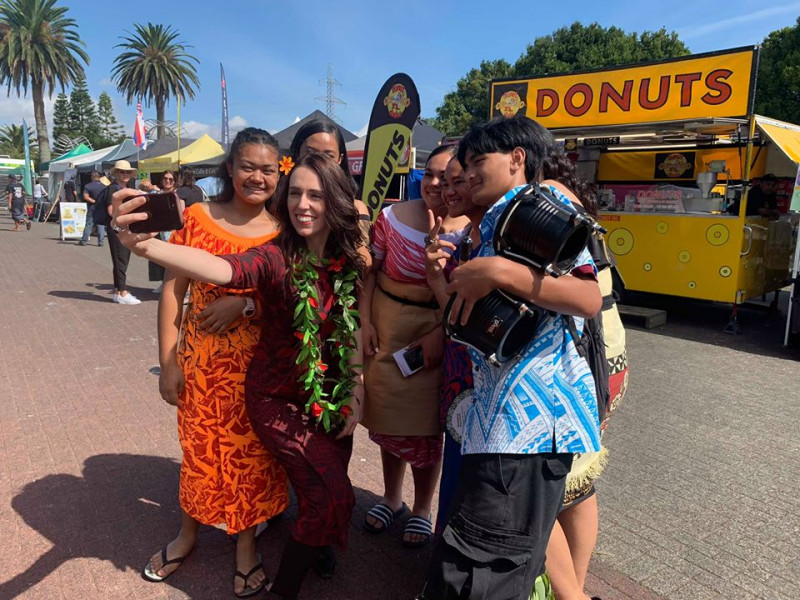Youth proudly express cultural identity
Youth proudly express cultural identity

Nestled in the heart of South Auckland, Manukau Sports Bowl once again set the scene for the world’s largest Māori and Pacific Island festival - ASB Polyfest.
The four-day festival got underway on March 14 with a special flag-raising ceremony, followed by the festival Powhiri where the festival guests (manuhiri) were welcomed by the hosts (Tainui and Pacific leaders), and an official opening by the Mayor of Auckland - Phil Goff.
The opening day also saw visits from Prime Minster – Rt Hon Jacinda Ardern and the Minister for Pacific Peoples – Hon Aupito William Sio to the 44th Anniversary of the festival and showcase of New Zealand’s diverse cultures and a celebration of youth performance.
Prime Minister Ardern and Minister Sio checked out various stages during their walkabout, including the TWWoA Maori Stage and Unitec Diversity Stage, while meeting some of the 12,000 students ready to grace the festival’s stages over four days of competition and performances.
The Ministry for Pacific Peoples (MPP) is a long-time supporter of this dynamic event, which has allowed for Pacific youth to proudly express their cultural identity for more than four decades.
This year’s theme for ASB Polyfest was:
The blood of the ocean flows through me
My sustenance, my nest of higher learning, my navigator
I am the living essence of the ocean
the living essence of the ocean is me.
A total of 234 school groups performed on the festival’s six stages this year – a far-cry from its humble beginnings 44 years ago where four schools took part.
The ASB Polyfest has developed into one of Auckland‘s largest events, frequented by approximately 100,000 visitors and spectators.
One festival stage that has seen huge growth in popularity is the Unitec Diversity Stage, which accommodates groups outside the festival’s traditional Māori, Cook Islands, Niuean, Tongan and Samoan performance categories.
Eighty-two groups performed on the Diversity Stage this year, representing 22 different cultures.
India is proving to be the most popular culture represented with 14 groups, followed by Chinese, Fijian and Filipino with eight groups each, and Korean with seven groups performing.
While traditional music, song and dance have always been massive drawcards and were again this year, so too were the native language speech competitions, sponsored by the Ministry of Education.
ASB Polyfest drew to a close on Saturday.
